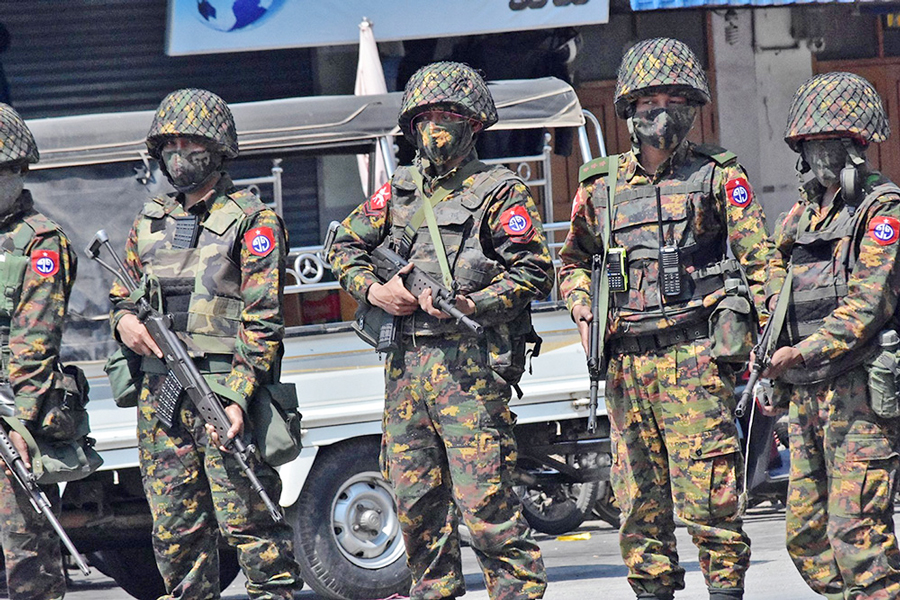
Published :
Updated :

Has the Myanmar Army now been gaining the upper hand over the rebels and regaining territory lost to the rebel forces so far? A BBC report says that with the support of China, the Myanmar army has intensified air strikes against the rebel held positions. Earlier, when the Myanmar government forces were losing their fight against the insurgent forces, it was thought that the morale of the military junta in Naypyidaw was crumbling. But this month, it recaptured Kyaukme from the Ta'ang National Liberation Army (TNLA). Previously, the insurgent TNLA forces gained control of the Kyaukme town, which is located on the main trade route from the Chinese border to the rest of Myanmar. Earlier, that town was captured by the insurgent army, TNLA, from the government forces through several months of hand-to-hand combat. That success of TNLA was seen by many observers as the turning point in war by the opposition forces against the armies of Naypyidaw. But this month in just three weeks of fight, the junta army retook the town in which rebel forces faced severe losses as large part of Kyaukme has been razed to the ground by the government forces.
In fact, since the beginning of the war against the opposition movements and their armed resistance, the junta forces' strategy has been one of 'scorched earth policy'. In this strategy, the attacking army destroys anything that might be useful to the enemy including crops, infrastructure and resources. The Myanmar forces has been doing exactly that against the rebels. The government army has meanwhile recruited more personnel, in most cases by force from among the citizens, into the armed forces. There are also reports of kidnapping of people in addition to mandatory conscription of people of all age groups into the army. Also, there are reports that Rohingya men, arrested by the government forces during their raids into the Rohingya villages, are being forced to join the government forces to fight the rebel army in the Rakhine State. So, the Myanmar government forces have clearly been reinvigorated through Chinese support as China, it could be further learnt, in a bid to give legitimacy to the junta government, wants it to hold an election in December. However, the plan has reportedly been widely condemned since it does not include Aung San Suu Kyi's National League for Democracy (NLD). Notably, the Suu Kyi's NLD won the last election and formed government, but the miliary chief, General Min Aung Hlaing, toppled that government in a coup d'etat in February 2021. In response, the opposition's democratic resistance began resistance movement against the military rule, which the junta government crushed with brute force. The popular resistance against the military junta then started all across the country with which the ethnic rebel groups, who have been fighting against the government for decades, initially joined hands.
But the lack, on the part of the resistance movement, of a centralised command is being rather helpful for Myanmar junta forces. The insurgent ethnic rebel forces, too, harbour deep mistrust of the ethnic Burmese majority and their National Unity Government (NUG) formed by the anti-junta opposition groups. Unfortunately, their ragtag 'people's defence forces (PDFs)' comprising local villagers and young people fleeing cities to avoid government repression and recruited for PDFs were no match for the government army. However, in Bangladesh, our main concern is about the fate of the Rohingyas. Though of the 24 townships in the Rakhine State, Aarakn Army (AA) took control of 17, Siitwe, the state's capital, is still controlled by the junta forces. The junta forces are reportedly fortifying their positions there. Bangladesh government should keep close watch on the developments.
sfalim.ds@gmail.com


 For all latest news, follow The Financial Express Google News channel.
For all latest news, follow The Financial Express Google News channel.